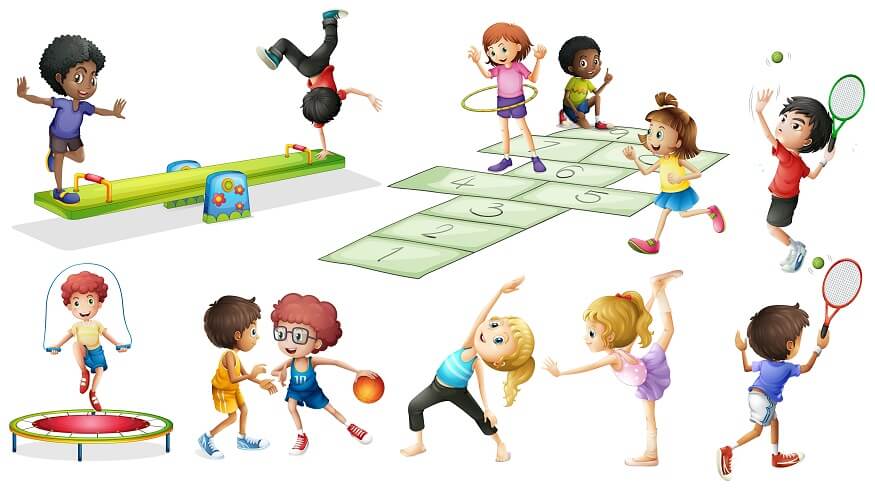
Fostering Healthy Habits in Children Through Active Play
In a world where technology often competes for children’s attention, fostering physical activity from an early age is crucial for their overall well-being. Engaging kids in active play not only contributes to their physical health but also promotes cognitive development, social skills, and a lifelong love for movement.
The Importance of Physical Activity for Kids
Physical activity is essential for children’s growth and development. It helps build strong bones and muscles, improves cardiovascular health, and enhances flexibility and coordination. Additionally, regular physical activity is linked to better mental health, improved mood, and a reduced risk of childhood obesity.
Active Play and Cognitive Development
Engaging in active play has positive effects on cognitive development in children. Running, jumping, and playing sports stimulate brain function, enhancing memory, attention span, and problem-solving skills. By integrating physical activity into their daily routine, we support not only their physical health but also their cognitive abilities.
Social Skills and Team Building Through Play
Active play provides an excellent opportunity for children to develop social skills and teamwork. Participating in group activities, sports, and games teaches them how to communicate effectively, collaborate with others, and navigate social interactions. These skills are crucial for their academic and personal success.
Creating a Playful Environment at Home and School
Parents and educators play a significant role in creating environments that encourage physical activity. At home, providing access to age-appropriate toys, outdoor spaces, and sports equipment can inspire kids to engage in active play. Similarly, schools can incorporate recess, physical education classes, and extracurricular sports to promote a culture of movement.
Balancing Screen Time with Physical Activity
In today’s digital age, balancing screen time with physical activity is a challenge for parents. Encouraging outdoor play, sports, and recreational activities can help counter the sedentary effects of excessive screen time. Establishing healthy screen time limits allows kids to enjoy the benefits of technology while prioritizing physical well-being.
Incorporating Active Play Into Daily Routines
Making physical activity a part of daily routines is key to instilling healthy habits. Simple activities like walking or biking to school, playing in the backyard, or going for a family hike are effective ways to incorporate movement into everyday life. These habits set the foundation for a lifetime of active living.
The Role of Organized Sports for Physical Development
Participation in organized sports introduces children to structured physical activities. Team sports, gymnastics, and martial arts not only enhance physical fitness but also teach valuable lessons in discipline, goal-setting, and perseverance. Enrolling kids in sports programs fosters a sense of achievement and camaraderie.
Addressing Individual Interests and Abilities
Recognizing and supporting individual interests and abilities is crucial for encouraging sustained physical activity. Some children may gravitate towards team sports, while others may prefer solo activities like dance or swimming. By embracing and nurturing their unique preferences, we create a positive and inclusive environment for all.
Physical Activity Kids: A Lifelong Journey
Instilling a love for physical activity in children is a gift that keeps on giving. As they grow, the habits formed in childhood contribute to a healthier lifestyle in adulthood. By promoting active play, we not only invest in their current well-being but also empower them to lead active, fulfilling lives in the future.
For more insights on fostering healthy habits in children, visit Physical Activity Kids. Discover resources and tips to make physical activity an enjoyable and integral part of your child’s life.
